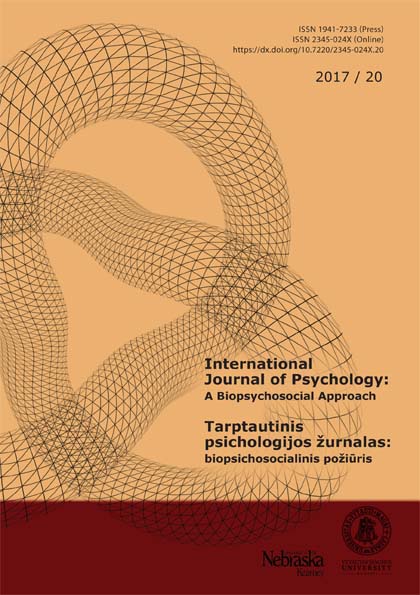Type D Personality in Cardiovascular Patients and General Population: Prevalence and Retrospective Perception of Stability
Type D Personality in Cardiovascular Patients and General Population: Prevalence and Retrospective Perception of Stability
Author(s): Justė Lukoševičiūtė, Kastytis ŠmigelskasSubject(s): Psychology, Health and medicine and law
Published by: Vytauto Didžiojo Universitetas
Keywords: Negative affectivity; Social inhibition; Lifestyle; Subjective health; Health psychology:
Summary/Abstract: Background and purpose. Type D personality is characterized by negative affectivity and social inhibition. This personality construct is linked to cardiovascular diseases and is considered as stable. However, there has been little research on prevalence in non-clinical samples and on stability of this construct. The main aim of this study was to evaluate the prevalence and retrospective perception of stability of Type D personality in patients and general population. Methods. This was a cross-sectional study with a sample from general population (n=304) and cardiovascular patients (n=154). Type D was evaluated using DS14 questionnaire. Respondents were asked to assess their personal characteristics at the moment and how they felt 5 years ago. Items about health condition, lifestyle and sociodemographic characteristics were also included into questionnaire. Results. Type D personality was similarly prevalent in both study groups – 33.1% in cardiovascular patients and 35.9% in general population (p =.561). The prevalence of Type D based on retrospective assessment: during the last 5 years increased by 8.4% points in patients (p =.015) and by 0.4% points in comparison group (p =.472). In addition, Type D personality was associated with less healthy lifestyle in both study groups (p<.05) and also with a worse perceived health in comparison group (p<.001). Conclusions. Type D personality is similarly prevalent in general population and cardiovascular patients. However, this construct is considered as less stable among the patients. Type D personality was associated with less healthy lifestyle and in part with worse perceived health.
Journal: Tarptautinis psichologijos žurnalas: biopsichosocialinis požiūris
- Issue Year: 2017
- Issue No: 20
- Page Range: 41-60
- Page Count: 20
- Language: English

